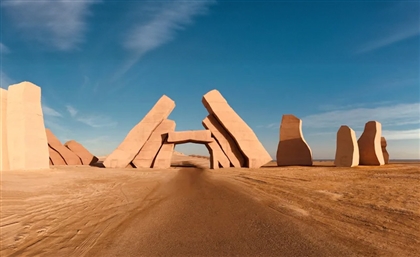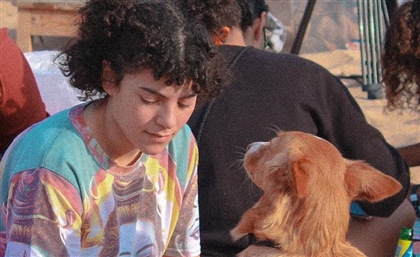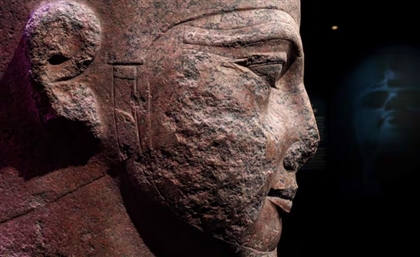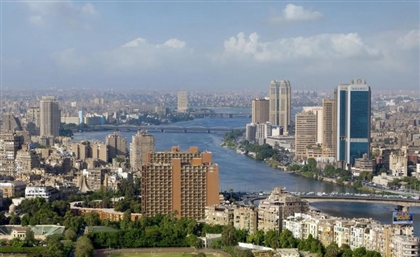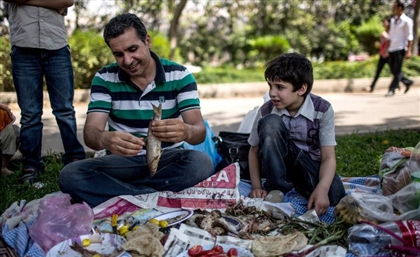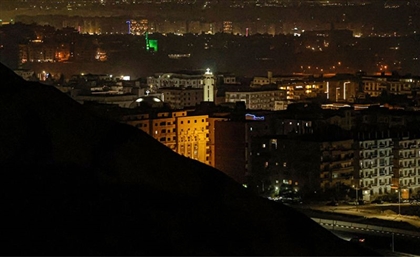Meet the Egyptian Couple Who Ditched City Life to Start Their Own Organic Farm in Sinai
Successful corporate careers in Cairo and Canada didn't stop them from leaving all behind.
Being city kids, born and bred in an environment of constant motion, a fast paced rhythm and the relentless pressure to meet deadlines and timelines, it's sometimes not even an option to stop and take a deep breath. There come days where quitting city life, leaving all the noise pollution behind and opening a coconut shack by the beach on some island seems like the perfect escape, but this only happens in movies, we tend to think.
The fact that such a life is so fictitious to most didn't stop Gihan Zakaria and Khaled Kamel, an Egyptian couple who simply decided to up and leave. They didn't go after a coconut shack though, they went for a whole organic farm, Dar Jan, in Sinai instead. It's been two years since their move and they haven't looked back since, which is really frightening to the city kid inside each one of us who needs their Mac delivery at 3 AM. How do they do it?
“When we decided to leave the city, we took the car and toured Egypt from Siwa to Sinai. Both Siwa and Nuweiba are very close to our hearts," explains Gihan. "Siwa is where we met for the first time and there was just an immediate click. I’d just gotten back from Canada where I grew up and I’d always wanted to visit Siwa. A mutual friend of ours planned the trip and the rest is history. We picked Nuweiba for a permanent stay, however, because we wanted to be close to the water. I'm originally from Alexandria so I like being next to the sea. And the environment is better for what we wanted to do.”Like most city kids-turned-over-worked adults, the couple led corporate careers until it got to a point when clocking in everyday at 8 AM and heading home at night for a pay check, wasn't cutting it anymore.
"We lived in Cairo for about two years before we decided to get out of the city. We wanted the clean, fresh air and to eat what we grow," says Gihan. "We always wanted to have a farm and grow organic products, so that's when we thought that we might as well sell them. We're specialised in herbs and we import the seeds from Canada and the U.S. We wanted to sell something that you couldn't find here, something added value. For the first year-and-a-half we were preparing for the project and we just started selling our organic products a couple of months ago."
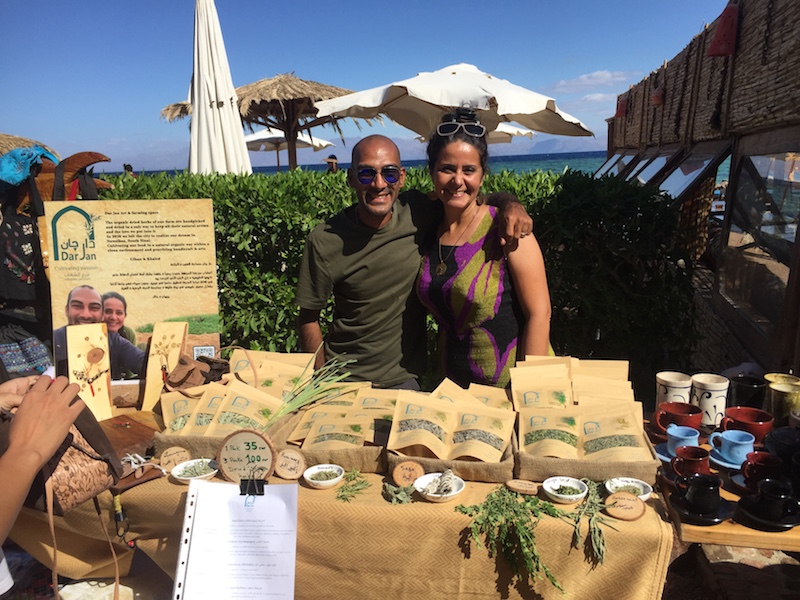
While Kamel and Gihan spend most of their time on the farm, from 5 AM to 6 PM to be precise, they actually live in a house they've rented out on the beach. For the couple, moving completely out of their comfort zone took a certain kind of discipline with the shift from the hectic and rather draining Cairo lifestyle, to a remote coastal oasis where they could just 'be'. The freedom of detaching from societal impositions found the adventurous couple making their own little haven out of the farm and a house on the beach, unshackled by the chains of the city.
"It takes a lot of discipline after living in a big city and working in the corporate world. And it's good for self development. We've always been interested in anything handmade and natural. We made our own bedroom and dining room in our Maadi home. But now, with all the space we have here, we can do more. When we got the land for the farm, there was nothing. We built everything from scratch and we had to learn organic farming. We work by ourselves, although occasionally we hire people to help."
While the concept of an organic farm may not have been fully accepted initially by Nuweiba's natives, who initially shunned it as fluffy business. It's with time and the couple's relentless belief in their project that they not only managed to bring the dream literally to life, but to also find acceptance and even support from their neighbours.
"In Nuweiba, they don't necessarily eat healthy, so when we first came here, they didn't really believe in what we were doing or in the whole organic farming concept," recounts Gihan. "But they saw our example and now they're starting to accept it. Most of the people here don't have their own farms. They'll usually buy the vegetables from Cairo and by the time it gets here, it's not as fresh - and it's expensive. We plant with a lot of love and care so they’re starting to see that you can live well by going organic."
Gihan and Kamel are both avid travellers and didn't own a TV, even when they lived in the city. Having always been handy, the couple also planning to host a workshop on their farm where they aim to invite local artists and introduce people to the local handicrafts of Nuweiba. Striving to learn themselves as well as teach others, they've already had their first workshop to show those who would like to follow a similar path a glimpse into the simple life.
"This isn't the life for everyone. Your priorities change completely and there's very limited access to what you can buy. Working on a farm is quite harsh as well, especially when it's hot. In summer, we wake up at 3 AM to have everything done by 9 PM," says Gihan. "So we wanted people to get a little taste to know what they're getting into by coming here for a few days."
That being said, the couple surprisingly don't miss one thing about city life.
“The main difference is here is that you get to just be yourself. There’s less pressure from society when it comes to the material things,” says Gihan. “We don’t have to wear nice clothes because as opposed to the city where you're valued by what you wear. Here, people look at you and value you as a human being. The rhythm is much slower too. If something doesn't get done today, that's fine. It's not the end of the world. They have a saying here, 'wala 7aja' (no worries). So if we’re worried about doing something today and it seems like it can't get done until tomorrow or next week, it's not the end of the world.”
The decision to move wasn't without its worries, however, particularly for Gihan; the native culture is perceived as aggressively repressive towards women, but Gihan found that while this is how it may seem at the surface, it couldn't be further away from the truth.
“Khaled and I are partners in everything and and that’s how we do things. That’s the one thing I was worried about coming out here - that I’d be the 'madame'. When we finally moved, I was really surprised at the interaction with the Bedouins. In Cairo, when Khaled and I would go to local markets for instance, it was like I was transparent. They wouldn’t look me in the eye or talk to me. Here, it’s the opposite,; they look me in the eye and they call me by name," explains Gihan. "A lot of people think that the women here are weak because they’re completely covered and always at home. That’s not true; in some cases the women have more say than the men and most of them here work; they sell beads on the beach for example.”
The couple has slowly integrated into the community since they’ve gotten there. And while Nuweiba's natives may have been initially been skeptical of the arrival of these airy-fairy city folk, they've grown to accept them as their own.
“We started becoming part of their family and for Bedouins the home is very sacred. We were invited into their homes which is a really big honour, because it means they trust and value you. We wanted to be part of the community and they’re the type that don’t judge, even if they don’t necessarily understand," adds Gihan. "They have a very different way of life, but they don't judge someone who's different nor do they disrespect them. They respect that each person has their own mentality and whatever each person does is their business. They have this intuitive knowledge and we have our own kind of knowledge so it's a nice exchange."
Check them out on Facebook
- Previous Article CairoScene Weekend Guide
- Next Article This Egyptian Brand's New Mini Bags Will Make You Ditch Your Oversized Purse




